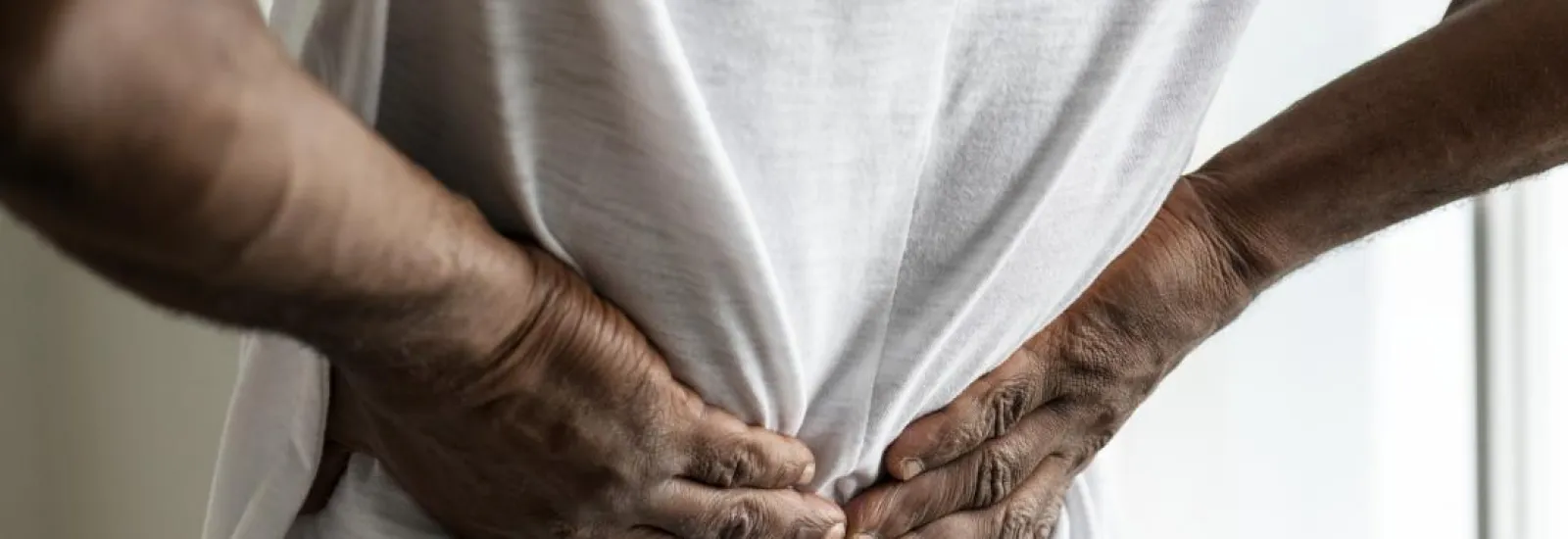
6 steps to better back and spine health
You exercise and eat right to keep your heart in good shape. You read and do Sudoku to help your brain stay sharp. But are you taking steps to preserve your back and spine health?
Up to 90 percent of people experience spinal pain at some point or another, according to the American Chiropractic Association. Although genetics and family history play a role, there are steps you can take to reduce spine-related problems, according to Hon Vien, DO, and Ted Kostiuk, DO, orthopedic spine surgeons at the Reid Health Comprehensive Bone & Joint Center. Certain lifestyle changes can help improve your spine health, reduce or prevent back pain, and enable you to do more of the things you enjoy.
6 tips for a healthy spine
- Stay active:
 Exercising keeps your back muscles strong while being sedentary can leave you feeling stiff and weak. Low-impact exercises such as walking, swimming, bicycling, and yoga have been shown to be effective, according to the National Institute of Neurological Disorders and Stroke. If you're not sure which activity is right for you, talk with your doctor.
Exercising keeps your back muscles strong while being sedentary can leave you feeling stiff and weak. Low-impact exercises such as walking, swimming, bicycling, and yoga have been shown to be effective, according to the National Institute of Neurological Disorders and Stroke. If you're not sure which activity is right for you, talk with your doctor. - Maintain a healthy weight: Extra weight puts stress on your back, which can lead to pain. If you're overweight, talk to your doctor about taking steps to make that number on the scale fall within a healthy range for your body type.
- Remember your posture: Try to sit or stand with your head up and your back straight. Avoid slouching, which strains your neck and shoulders.
- Lift carefully: Always bend at your knees -- not your waist -- to pick up items from the floor or table. Avoid twisting, which can hurt your spine. If something is too heavy to lift on your own, get help.
- Sleep comfortably: If you like sleeping on your back, place a pillow underneath your knees to relieve pressure on your spine. If you like sleeping on your side, reduce spinal pressure by keeping a pillow between your knees.
- Quit smoking: Smoking makes it harder for your body to recover from injuries, including back and spine injuries, according to the National Institute of Arthritis and Musculoskeletal and Skin Diseases. Plus, smoker's cough can cause back pain. Your doctor can help you kick the habit. Reid can provide you with the resources you need to get started.
Help for back pain
If you start to experience backaches or discomfort, talk with your doctor about the best way to find relief. According to the National Institute of Arthritis and Musculoskeletal and Skin Diseases, possible treatments include the following:
- Hot or cold packs: Both can help reduce inflammation, which might help minimize discomfort.
- Medications: Over-the-counter and prescription options such as nonsteroidal anti-inflammatory drugs (NSAIDs) and analgesics alleviate pain but because of their side effects, they shouldn't be used long term.
- Physical therapy and strengthening exercises: A prescribed regimen of PT and exercises to strengthen your muscles and improve your posture can help you bounce back from an injury faster.
- Spinal manipulation and massage: Chiropractic techniques and massage therapy can also serve to ease discomfort.
Your doctor can help you determine the right options for you.
What to do when the back pain won't quit
If medication and lifestyle changes aren't enough to improve your back pain, you and your doctor might have to discuss spinal surgery. Thanks to new technologies, this isn't as daunting as it once was. Some spine procedures are minimally invasive, resulting in a much quicker surgery and healing process. Using tools such as robotic guiding systems and specialized dilators, spinal surgeons such as Dr. Vien and Dr. Kostiuk make smaller incisions and perform spine surgeries more quickly so patients spend less time in the operating room.
"There's less pain, faster recovery, lower infection rates, and less time spent under anesthesia," said Dr. Vien, who's performed these procedures on hundreds of patients.
To schedule an appointment with Dr. Vien or Dr. Kostiuk, contact the Reid Health Comprehensive Bone & Joint Center at (765) 962-4444.

